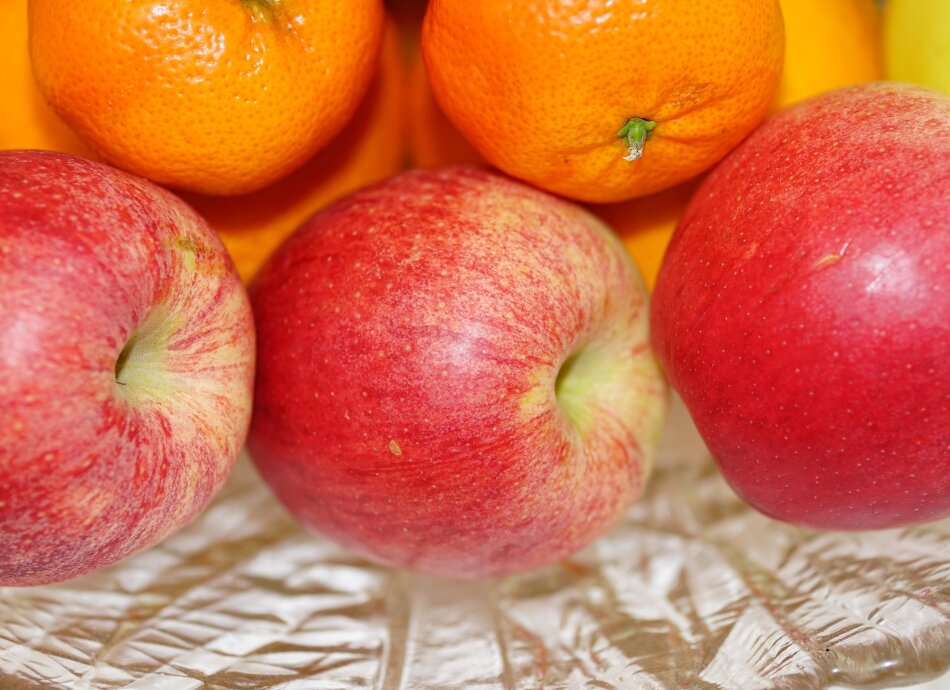D-mannose and UTIs
Key points about D-mannose and urinary tract infections
- D-mannose is a type of sugar found in some fruits and vegetables, eg, oranges, apples, broccoli and green beans.
- There is some thought it may help prevent or treat treat urinary tract infections (UTIs).
- However, there isn't enough evidence to support its effectiveness.

D-mannose is a sugar that can be found in some fruits and vegetables, such as oranges, apples, peaches, broccoli and green beans. It has been used in the past to treat UTIs in animals. Now, there is some interest into whether it could also treat and prevent UTI in humans. It is thought that it might work by making it more difficult for the bacteria that are responsible for UTIs to attach themselves to the urinary tract. It can be bought without a prescription.
Research into D-mannose for preventing and treating UTIs in people is still very new. A 2013 review article noted that there are virtually no clinical studies in which D-mannose has been evaluated for recurrent UTI prevention.
A 2014 randomised controlled trial found that D-mannose may be effective in preventing people from getting further UTIs. However the study was flawed, such as being unblinded (the study participants knew whether they were taking D-mannose or not), and having no placebo group, which may have affected the results. The researchers noted the need for further studies to validate their results.
Another 2016 pilot study had promising results to indicate that D-mannose may be effective for both treatment and prevention of UTIs. However, the study was very poor quality, having no comparison group and having a very small sample size. Therefore, no conclusions should be made from this study.
One study noted a minor side effect of diarrhoea. However, it was not severe enough for them to stop taking the supplements. Another study suggested that taking D-mannose supplements may cause complications for women who are pregnant or have diabetes.
- Due to the lack of research, the right dosage of D-mannose or the form to take it in is not known.
- Also, there is not yet enough research to know all the possible risks and side effects.
- It is not clear whether it may interact with other medications.
- There is not enough evidence to recommend D-mannose for preventing UTIs.
- There are no randomised trials looking at D-mannose for the treatment of UTIs, and so this is not recommended.
- Based on the small amount known to date, don’t try D-mannose if you are pregnant or have diabetes.
- If you are getting recurrent UTIs, talk to your doctor.
References
- Hickling DR, Nitti VW. Management of recurrent urinary tract infections in healthy adult women(external link) Rev Urol. 2013; 15(2): 41–48.
- Kranjčec, B., Papeš, D. & Altarac, S. D-mannose powder for prophylaxis of recurrent urinary tract infections in women – a randomized clinical trial(external link) World J Urol (2014) 32: 79.
- Domenici L, Monti M, Bracchi C, et al. D-mannose – a promising support for acute urinary tract infections in women. A pilot study(external link) Eur Rev Med Pharmacol Sci. 2016 Jul;20(13):2920-5.
- Altarac S, Papeš D. Use of d‐mannose in prophylaxis of recurrent urinary tract infections (UTIs) in women(external link) BJUI Int. 2014 Jan;113(1):9-10.
- Sharma V, Ichikawa M, Freeze HH. Mannose metabolism – more than meets the eye(external link) Biochem Biophys Res Commun. 2014 Oct 17; 453(2): 220–228.
Credits: Healthify editorial team. Healthify is brought to you by Health Navigator Charitable Trust.
Reviewed by: Dr Jeremy Steinberg
Last reviewed:
Page last updated:





